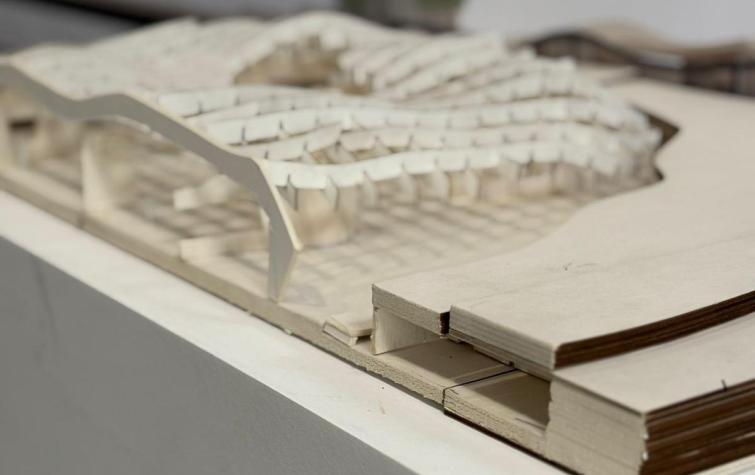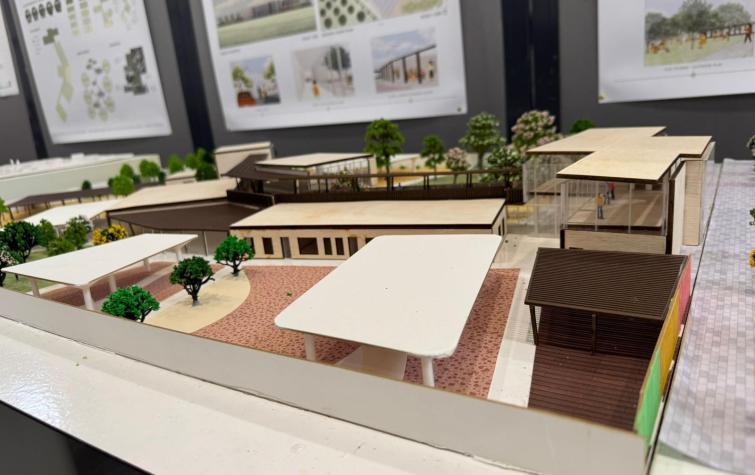The Architecture Department at the College of Architecture held the final presentation for the Design 2 course projects under the theme: “Designing a Kindergarten Inspired by Contemporary Educational Philosophies.” The course was supervised by Dr. Dalal Al-Sayer, Dr. Wiam Abdullah, Dr. Sarah Malek, Eng. Muneera Al-Rayaee, Eng. Dana Al-Hassan, and Eng. Dana Al-Khudhur.
Students were tasked with developing architectural concepts based on educational principles drawn from five globally recognized educational philosophies:
- Montessori Philosophy: Emphasizing child independence and experiential learning.
- Waldorf Philosophy: Integrating creativity and spirituality with active learning.
- Reggio Emilia Approach: Promoting collaborative learning and viewing the child as an active participant in their environment.
- Anji Play: Encouraging free play and self-guided learning through interaction with the environment.
- Blank Street Approach: Focusing on simple daily experiences and community engagement.
In their projects, students aimed to translate these philosophies into architectural spaces with both functional and human-centered designs. This involved a deep study of children’s psychological and physical needs, resulting in designs that:
- Adhere to safety standards and promote children's psychological comfort.
- Feature flexible layouts that allow for future expansion and adaptation to users' needs.
- Respond to the local environment and climate, with careful selection of building materials and plants suited to Kuwait’s conditions, while emphasizing environmental sustainability.
Students also drew inspiration from renowned architectural works and influential architects, infusing their projects with a contemporary spirit that balances aesthetic, functional, and educational aspects.
These projects reflect a high level of intellectual maturity and meticulous design, demonstrating students’ awareness of early childhood issues and the crucial role of architectural environments in supporting the educational experience. This marks a promising step toward developing innovative educational designs both locally and globally.


 Colored
Colored Grayscale
Grayscale



